Louis Menand asked a terrible question in the New Yorker this week: "Are Bookstores Just a Waste of Space?"
Fortunately, his answer was no (mostly). "You will probably soon be able to chat online about your book interests with a bot, but a bot is not a person with green hair, a tattoo, and a sense of humor who might have some offbeat suggestions for you," Menand wrote. "Salespeople today tend to be book lovers themselves (historically not always the case), and they can recommend a new book or help you find a book whose title you have forgotten.... The chief rationale offered for brick-and-mortar bookstores today is that they are community-building spaces.... They are practitioners of bibliotherapy. They introduce people to books that will help them overcome grief or minister to confusions about life choices or personal identity."
Speaking of ministering, earlier this month an Instagram post by City Lights, San Francisco, Calif., pointed me to a New York Times article by Cara Buckley, headlined " 'Earthalujah!': A Rebel 'Pastor' Preaches for the Planet."
"The preacher stood wild-eyed before his flock, swaying to a gospel choir. His pompadour stood tall, his voice was thunderous, and his all white suit perfectly matched the heeled white loafers he was wearing on his feet," Buckley wrote. "This was Earthchxrch, also known as Earth Church, the latest iteration in the ever evolving mash-up of performance art, satire, protest and song from Reverend Billy Talen, a self-anointed preacher and ersatz clergyman, and the Stop Shopping Choir.... They called themselves the Church of Stop Shopping, which Mr. Talen has described as 'an anti-consumerist communion devoted to putting the odd into God.' "
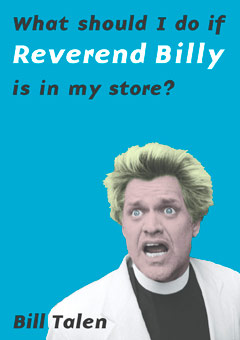 As it happens, I had the opportunity to spend some quality time with Rev. Billy earlier in the century at the Northshire Bookstore in Manchester Center, Vt. He was at the bookshop for an author event, though he never broke character (a compliment). Memory fades, so I'm not sure if it was for his book What Should I Do if Reverend Billy Is in My Store? (The New Press, 2005) or What Would Jesus Buy (Public Affairs, 2007).
As it happens, I had the opportunity to spend some quality time with Rev. Billy earlier in the century at the Northshire Bookstore in Manchester Center, Vt. He was at the bookshop for an author event, though he never broke character (a compliment). Memory fades, so I'm not sure if it was for his book What Should I Do if Reverend Billy Is in My Store? (The New Press, 2005) or What Would Jesus Buy (Public Affairs, 2007).
He was great fun to be around, even though, as a semi-conscious consumer, frontline bookseller, and future book trade newsletter editor, I could have been seen as an all-consuming enabler. But Rev. Billy must have had a good time because he returned in 2016 to promote The Earth Wants You (City Lights).
Rev. Billy and his Stop Shopping movement have been around since the 1990s, but it does appear the world of social media consumers is gradually catching up with him, if the articles hitting my inbox and Google Alerts lately are any indication. Among recent examples:
Fast Company ("Why TikTok's 'Underconsumption Core' trend won't die"): "For more than a month now, people across social media have been bragging about the scuffed, worn-out shoes they've been wearing since middle school and how they use their makeup all the way till the very last drop.... It's a trend that has been exploding throughout the summer, under the hashtag 'underconsumption core'.... Companies that pivot toward designing more durable products, and making them from higher quality materials, will stand out in a market that remains flooded with low-quality goods. And many consumers are desperate for products built to last, and will be paying to pay a premium for it. The ball is in your court."
FoxBusiness ("More people trying 'no-buy year' trend to save thousands of dollars"): "A Tiktok trend is encouraging people to save more money. It's called the 'no-buy year.' The rules are simple. Make a list of the non-essential items you will not spend money on for a set length of time and stick to it."
The Guardian ("Reuse that teabag! Ignore that special offer! It's time to join the underconsumer revolution"): "Enter 'underconsumption core.' It's the latest slightly earnest TikTok trend, in which young people extoll the virtues of buying only what you need.... Consumer goods companies are powerful and sophisticated, with huge budgets to throw at conventional advertising and influencers to make people want their stuff. Why not try to beat them at their own game?... Underconsumption is part of a de-influencing fightback against the dispiriting, destructive churn of hyperconsumerism and it targets influencers' audiences; it makes sense to use their codes and conventions."
Where do books and bookstores fit into this trend? That question brings us back to Louis Menand's New Yorker piece, where he observed: "One reason for the distribution problem is that each book is a unique good. It is handcrafted by a writer and a postproduction team of editors and designers.... And, unless you are a 'just looking for something to read on the beach' kind of customer, there are usually no acceptable substitutes. When you go to a supermarket, the store may carry two brands of milk or ten. It doesn't matter. You just want milk. But book buying doesn't work that way. You want the book you want."
You want the book you want. Somewhere between the underconsumer revolution and good old-fashioned hyperconsumerism lies a cozy nook where you can buy stuff that does matter, without guilt. Let's call that space an independent bookstore.
I love the creative sidewalk chalkboard messages that so many indie bookstores feature outside their storefronts. We highlight them often at Shelf Awareness (see above). If I had a sidewalk board here, it would read: "Don't Buy Nothing... Buy Books!"
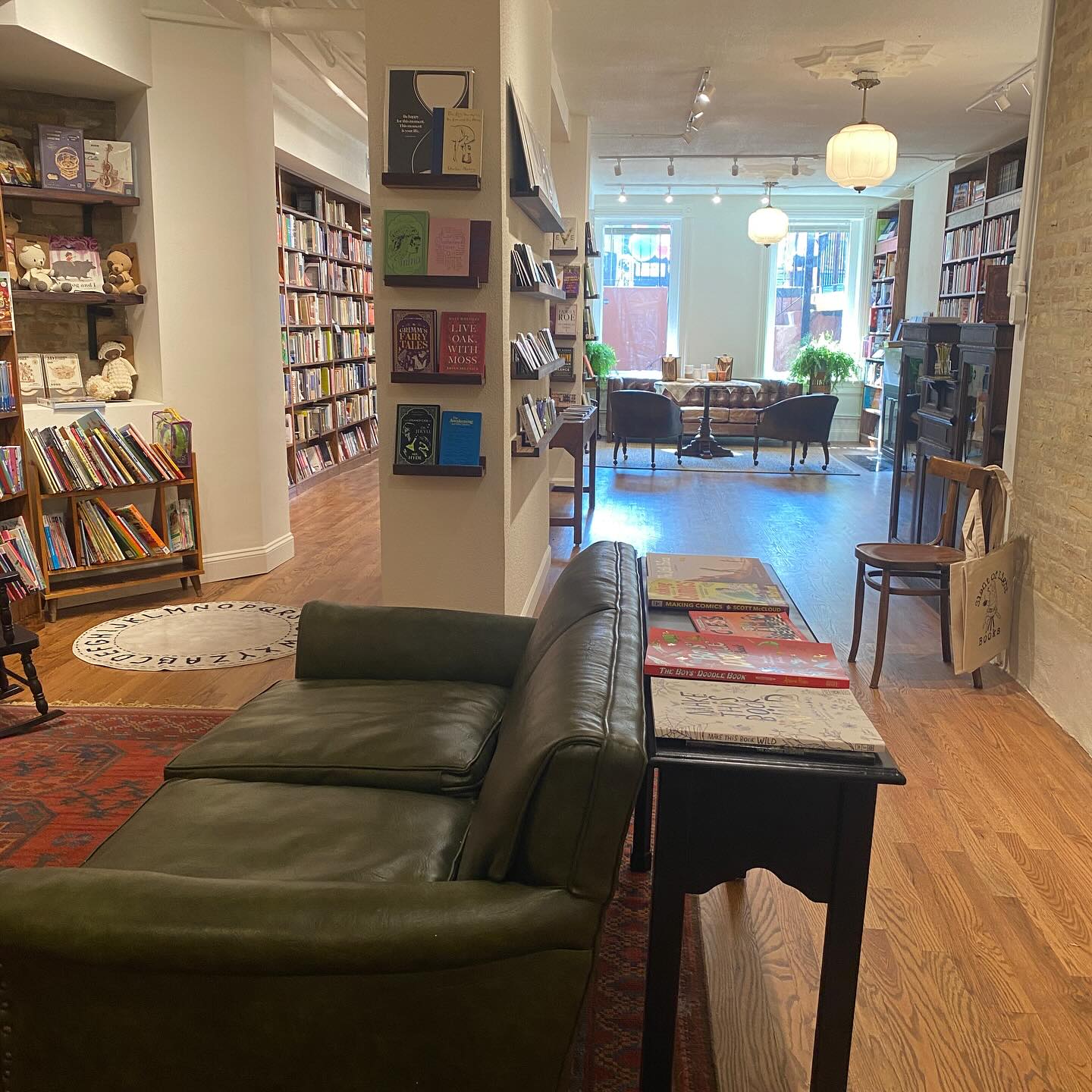 "I think we have all felt this online fatigue," she said. "Whether that means teaching on Zoom or just working from home, I think a lot of us who have been locked into the internet have felt this collective realization as a society where we are really hungry for these spaces outside of work and home. Spaces that can fill our souls."
"I think we have all felt this online fatigue," she said. "Whether that means teaching on Zoom or just working from home, I think a lot of us who have been locked into the internet have felt this collective realization as a society where we are really hungry for these spaces outside of work and home. Spaces that can fill our souls."










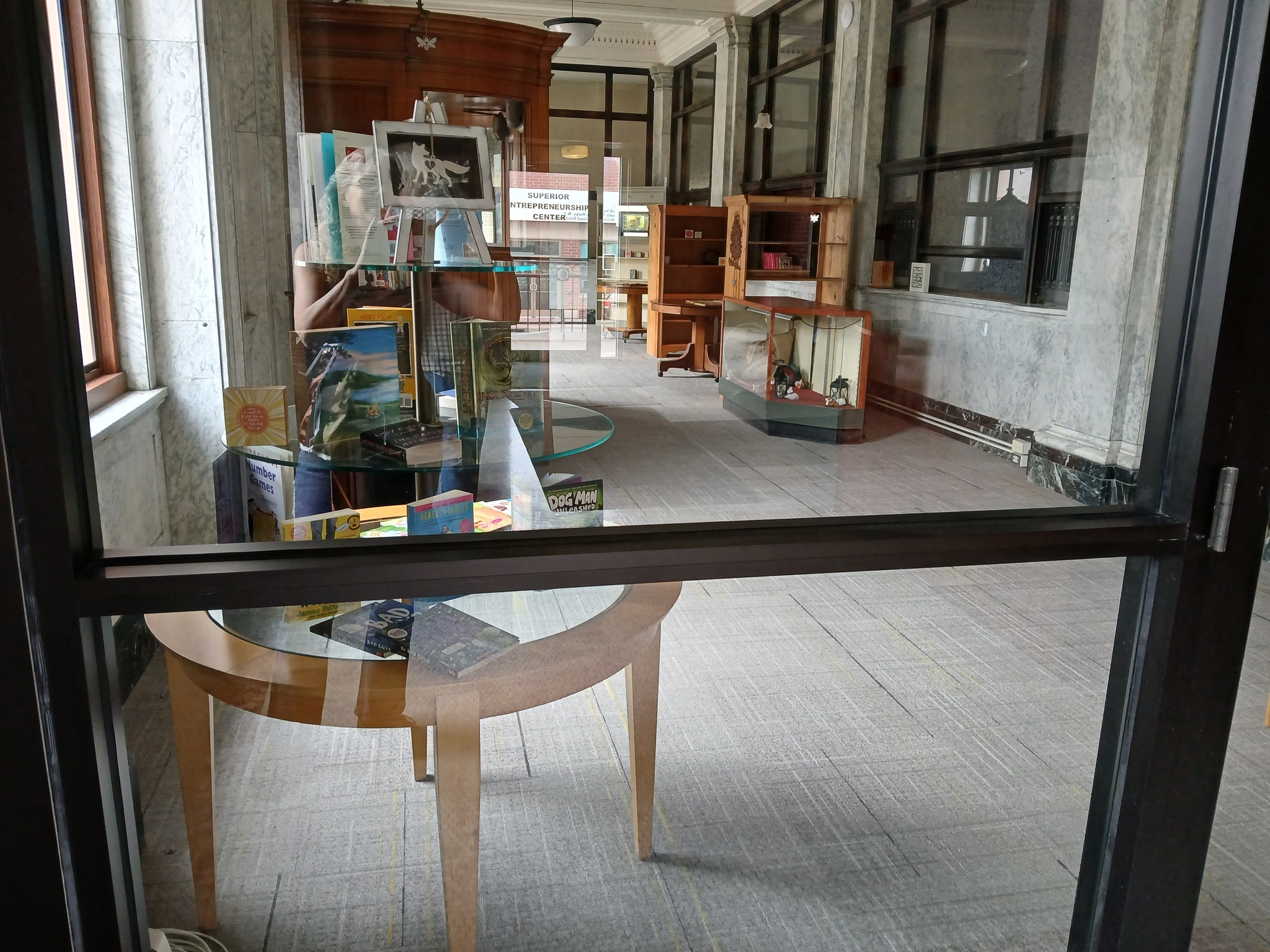

 "The new area will be perfect for our in-store events, accommodating an additional 75-80 people. Plus, we're adding a lovely patio with greenery, where our Piebrary lovers can enjoy a cup of coffee in our Midtown oasis.... Construction is on the horizon, with work hopefully starting in early 2025. Your incredible support has made this possible, and we can't wait to celebrate this new chapter with you!"
"The new area will be perfect for our in-store events, accommodating an additional 75-80 people. Plus, we're adding a lovely patio with greenery, where our Piebrary lovers can enjoy a cup of coffee in our Midtown oasis.... Construction is on the horizon, with work hopefully starting in early 2025. Your incredible support has made this possible, and we can't wait to celebrate this new chapter with you!"
 Shelf Awareness for Readers, our weekly consumer-facing publication featuring adult and children's book reviews, author interviews, backlist recommendations, and fun news items, is being published today. Starred review highlights include the claustrophobic locked-room mystery
Shelf Awareness for Readers, our weekly consumer-facing publication featuring adult and children's book reviews, author interviews, backlist recommendations, and fun news items, is being published today. Starred review highlights include the claustrophobic locked-room mystery 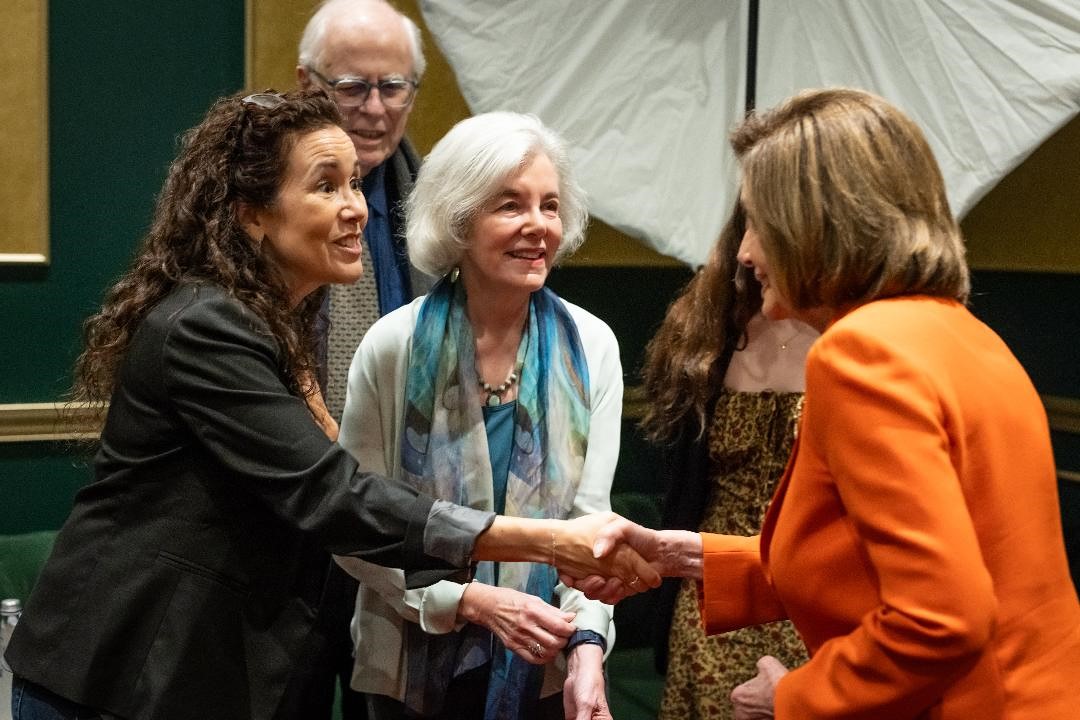

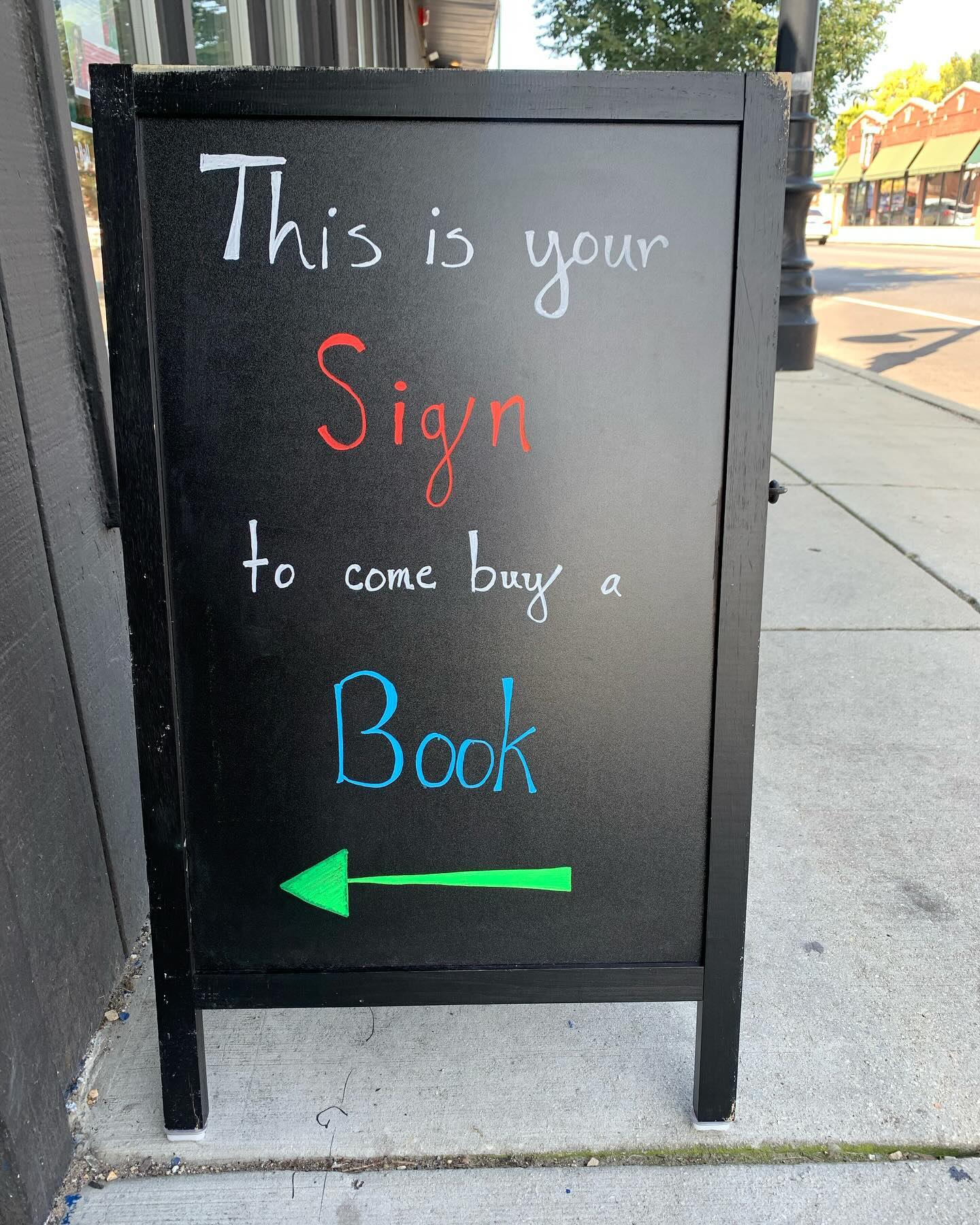 "
"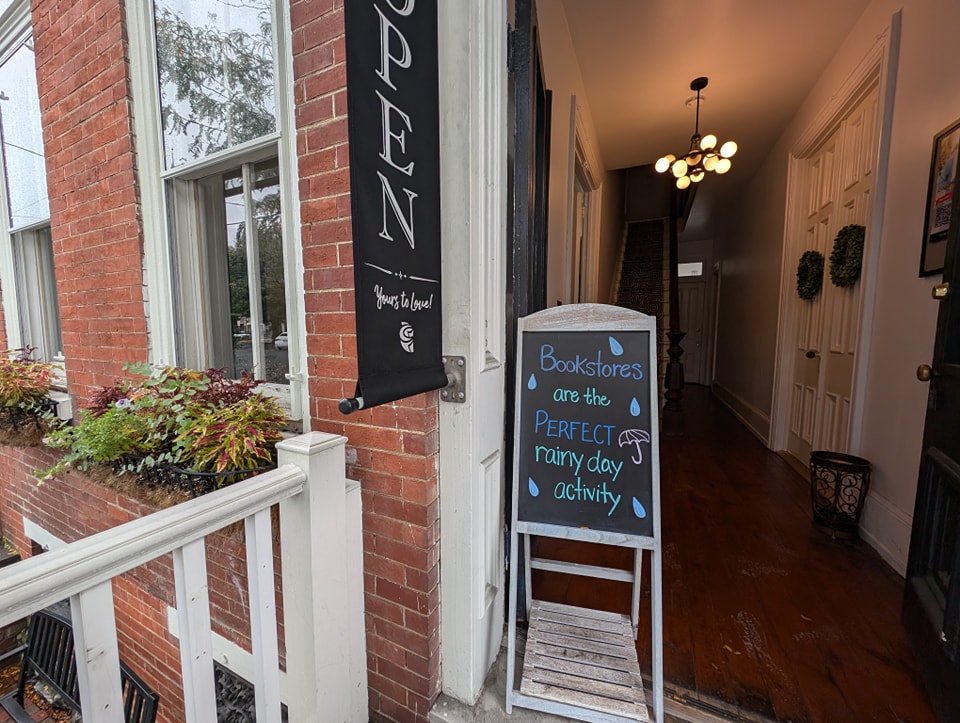 "
"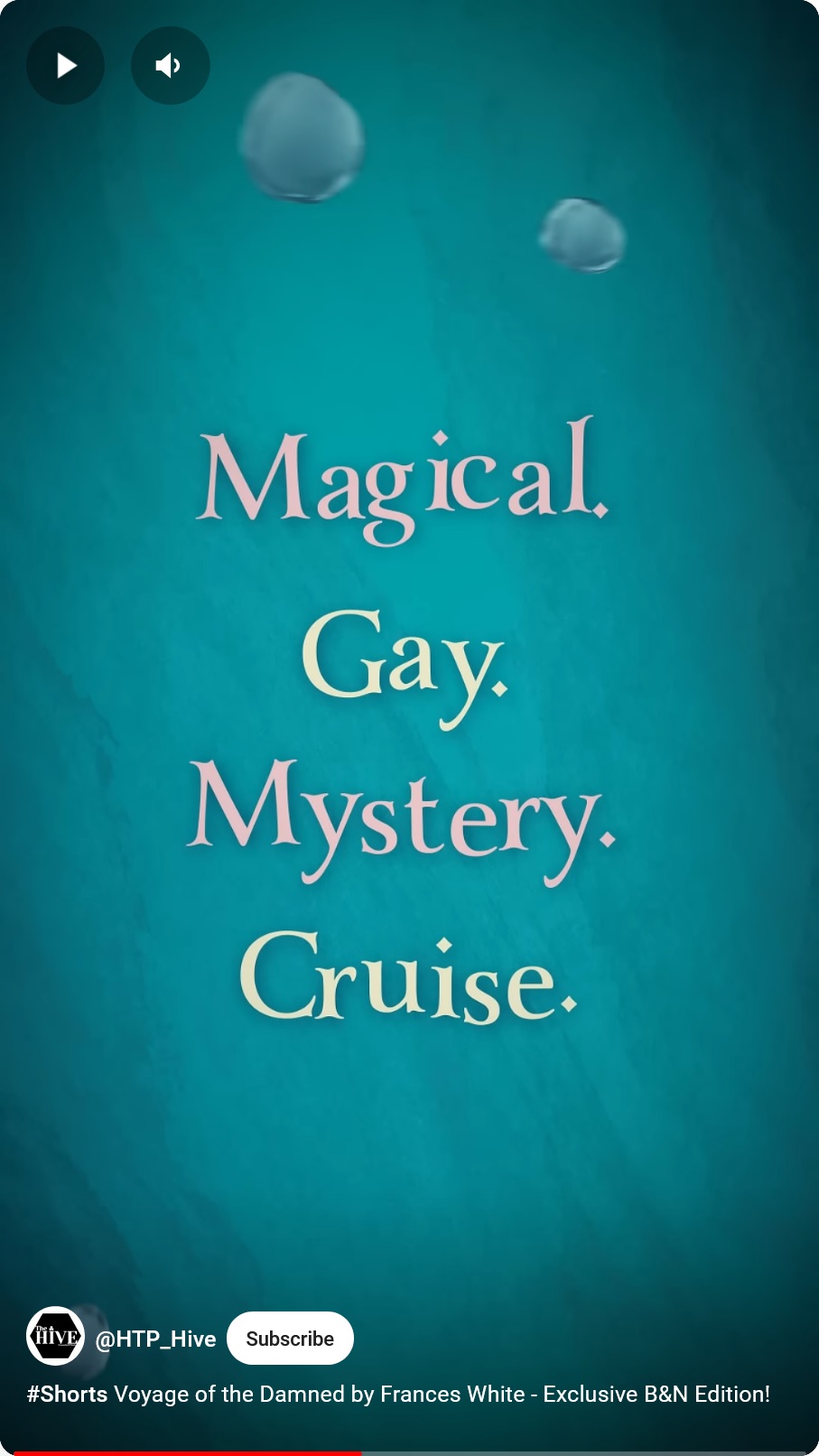 Voyage of the Damned
Voyage of the Damned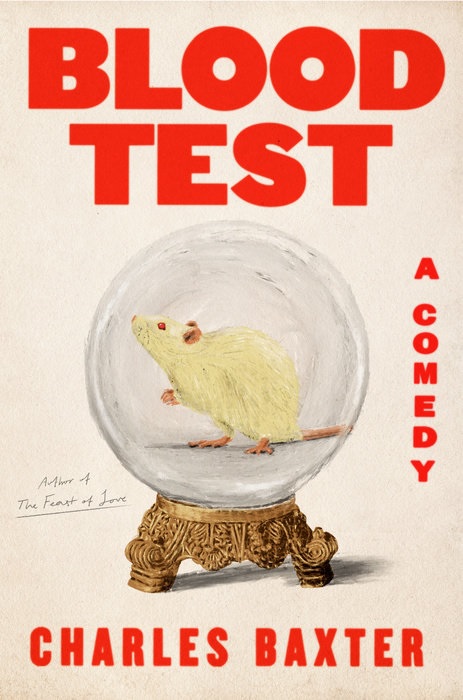 If you had a chance to take a blood test that would predict your future behavior, would you do it?
If you had a chance to take a blood test that would predict your future behavior, would you do it?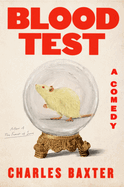
 As it happens, I had the opportunity to spend some quality time with Rev. Billy earlier in the century at the
As it happens, I had the opportunity to spend some quality time with Rev. Billy earlier in the century at the